
04 Apr What is one SMALL thing or ONE BIG THING THAT WE CAN DO ABOUT CLIMATE CHANGE? Here’s what 45 bold leaders said about their personal efforts and the world at large. and by the way – what’s your one thing?
If more of us felt more confident we could do something useful to stop climate change (or mitigation of the consequences) – that would be a good thing. The complexity of it all is orders of magnitude beyond most of our personal power even if we make good choices. The drivers of true solutions are of course at the public policy corporate behavior level, and the whole topic feels daunting. Still there are choices to make – and there is indeed action all around me, backing real solutions. When we take the risk of talking about it in good faith with each other, and making good choices, lots can happen. I asked friends and colleagues a hard question: What is one small or one big thing that we can do (personally or as a country, planet) about climate change? Here are their replies. My take is at the end. And by the way, what’s your one thing?
“We need to understand that while the climate crisis is the threat of our lifetime, it is also an incredible economic opportunity to address the systemic environmental, economic, and social inequities that exist for Black and Brown communities. The racial wealth gap and climate change present urgent and fundamental challenges that require our attention and investment. At Browning the Green Space, we are convening cross-sector leaders committed to advancing diversity, equity, inclusion, and justice in the clean energy field. We are building bridges to create jobs, build wealth, and reduce energy burden in communities of color as we transition to a clean energy future.” Kerry Bowie, Executive Director and President, Browning the Green Space

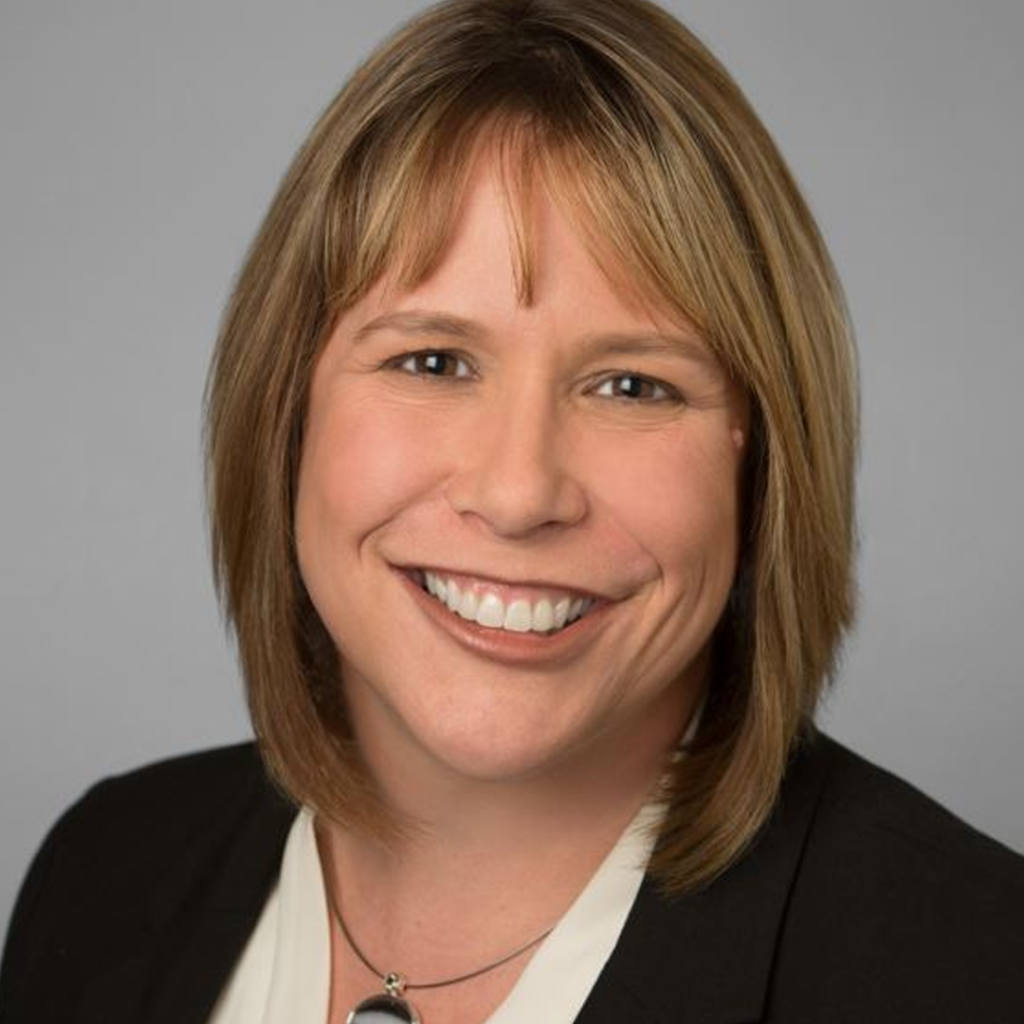
“We urgently need to shift from thinking about climate change as a future problem to approaching the climate crisis like any other major natural disaster. While wide-scale systemic change is necessary, we need to focus locally and dedicate the same level of energy to investing in climate adaptation infrastructure – especially in frontline communities that are already consistently dealing with climate-related extreme heat, flooding and poor air quality. We need to understand why climate inequities exist and double down on the actions we know reduce harm, including expanding our tree canopy, green infrastructure (rain gardens and green roofs), removing pavement, and creating new green-spaces.” Heather McMann, CEO, Groundwork USA
“Try to innovate in telecom energy efficiency to save > 0.5% of global electricity production.” Steve Papa, Founder & CEO, Parallel Wireless
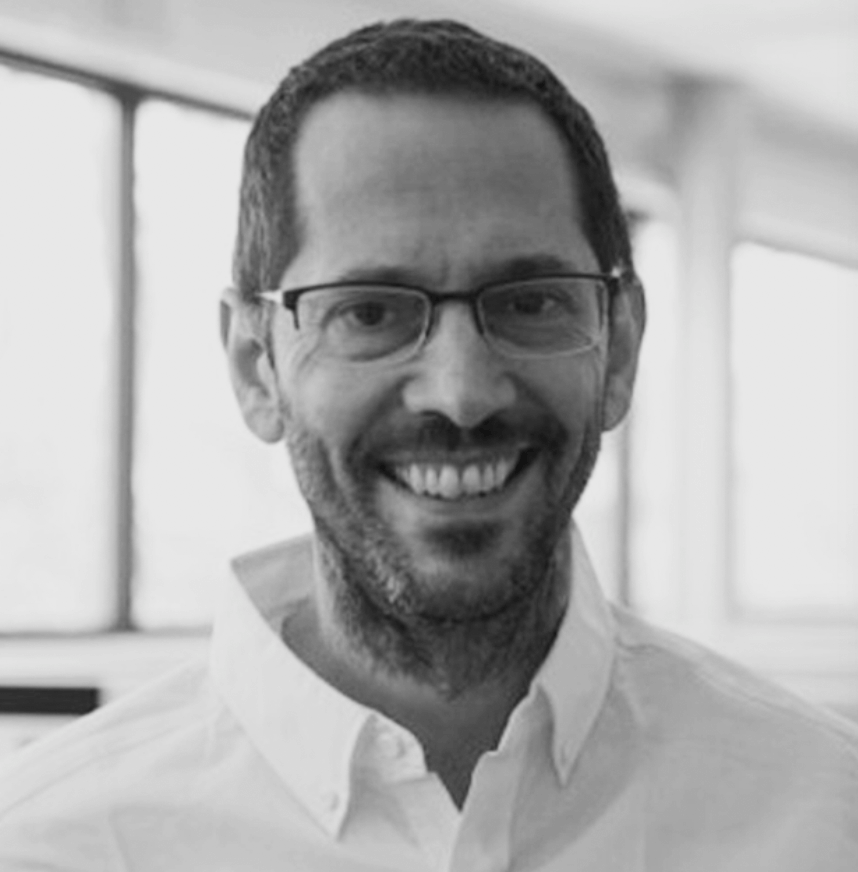
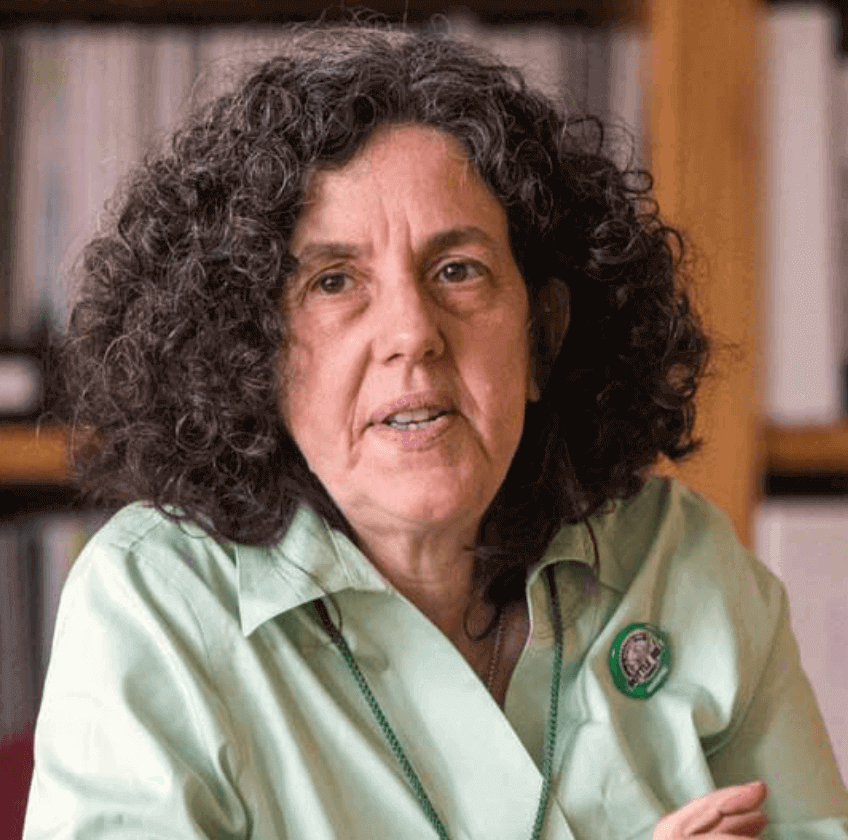
“Making, consuming and disposing of stuff are three of the top seven biggest contributors to climate change, according to the UN. We cannot recycle our way out of the mess we are in. “Reduce” was always the first imperative in the RRR mantra, but years of influence from huge manufacturers, the garbage industry, and the kind of insidious advertising that tries to make ‘disposable’ an appealing concept, has left us with infrastructure of landfills and incinerators. We must turn this sinking garbage ship around and make all our policy goals aim for zero waste. And the non-stop push to ban single use plastics, turn food waste into compost, make refill-ables accessible and so much more shows the commitment to zero waste is right here, right now.” Janet Domenitz is Executive Director of MASSPIRG
“We are mobilizing the full breadth and depth of the Reform Jewish Movement to join our interfaith and multiracial allies in building our collective “Power for Purpose” – an ambitious campaign to address the climate crisis and deliver a clean, healthy, and livable future for all communities, particularly those most impacted by climate pollution.” Rabbi Jonah Pesner, Director of the Religious Action Center of Reform Judaism and Senior Vice President of the Union for Reform Judaism
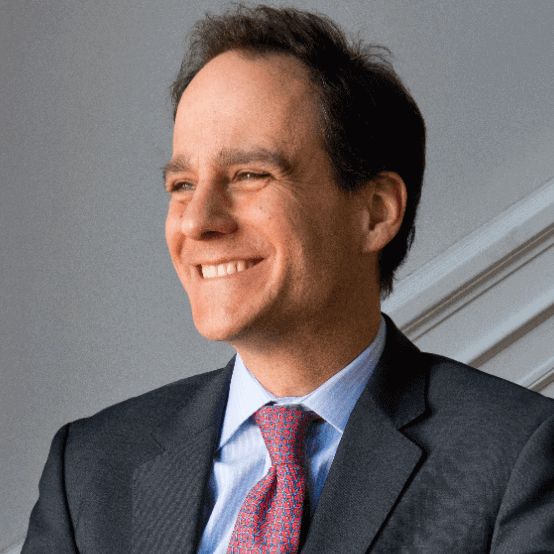
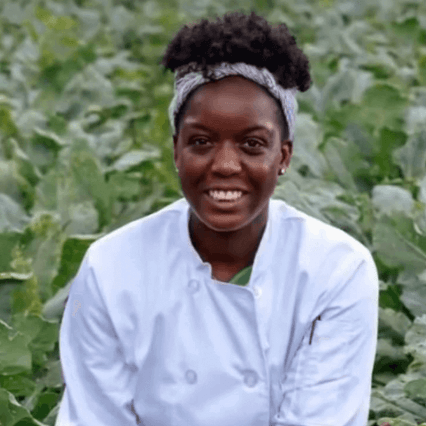
“To truly solve climate change we need more people involved. Specifically, climate change work has to be accessible to underserved communities. We have to demonstrate that care for the land and for each other are inherently linked. By leveling the playing field and addressing inequity, we can equip more people to lead and participate in climate change work. At Fresh Food Generation, our restaurant strives to increase access to local and regional farms that use environmentally sustainable and regenerative practices. We believe everyone should have the opportunity to be a part of the solution and consume goods and services accordingly.” Cassandria Campbell, CEO Fresh Food Generation
“I want to see more young people, particularly from the communities most affected by the climate crisis, represented in events, conversations, decision and policy making. Young people have a future that is very different from the one adults enjoy (even as we struggle). It is imperative that young people are meaningfully included in ways that support them to share their experiences, needs, hopes, and dreams and which fire their civic and moral imaginations. Consider the possibility behind these climate focused videos created by young people.” Karen Murphy, CEO, The Human Responsibility Accelerator
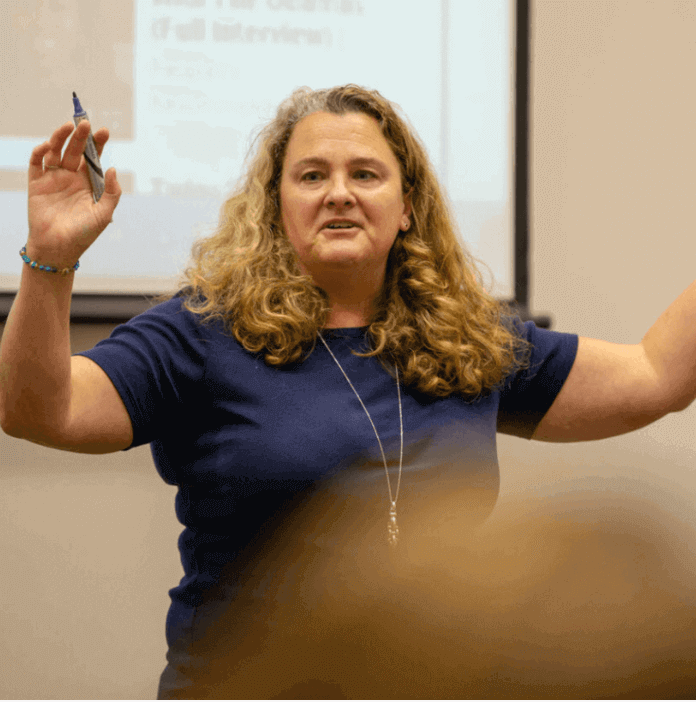
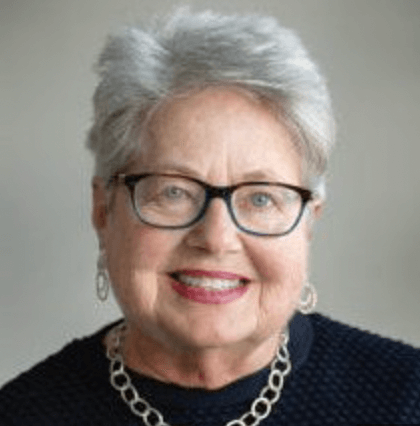
“As an advanced practice nurse and a legislator, the health of our planet is of great concern, A summary of my legislation H. 3183, filed for this 193rd legislative session which began January, 2023. This legislation requires all newly constructed and substantially remodeled or rehabilitated commercial and residential buildings to use electricity, or in some cases thermal power, instead of fossil fuels. This applies to space heating and cooling, cooking, clothes drying, and water heating. This legislation does not have exceptions for hospitals or bio labs. At the moment, I am building support. It is a priority of Mothers Out Front.” The Hon. Kay Khan, State Representative, Newton, Massachusetts
“At our office we limit plastic use and recycle materials such as beverage cans and paper. We are also a paperless company which we know helps save trees and is part of improving the quality of air we breathe. More significantly, our clients are under increasing pressure to make sustainability practices a part of their business, and we are at the table with them, figuring out how it fits into forecasting and planning. It’s a whole new era for financial professionals, and we’re excited about it.” Diomaris Pimentel, CEO, Dio’s Financial Services
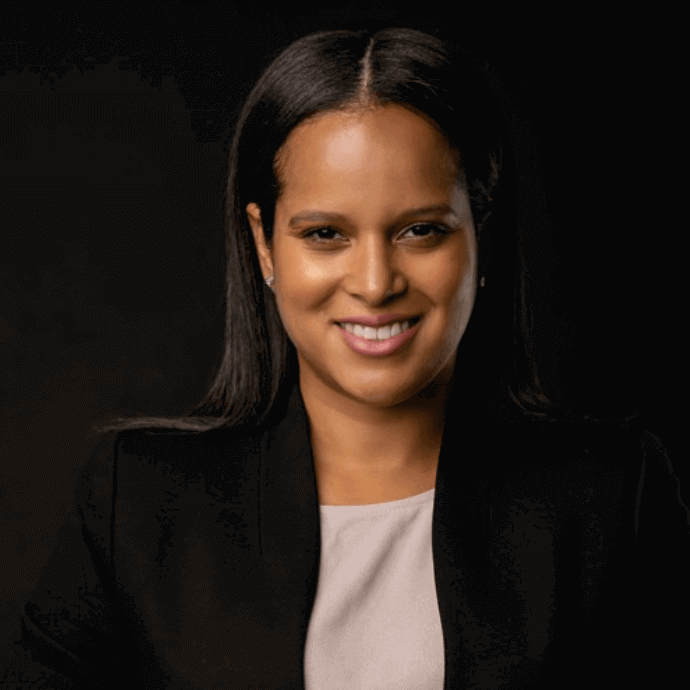

“As a rural person, Democrat, and climate activist I am working to help people understand the essential role rural counties play in the solution to climate change. With investments in our communities we can sequester carbon, produce renewable energy, grow and manufacture clean fuels, clean building materials and other products, all while creating family wage jobs. Without the creation of family wage jobs in our counties as part of the solution, people who will stand in the way of progress will continue to get elected. Rural people and places are part of the solution – not the problem. We just need a seat at the table.” Teresa Purcell, National Political, Communications & Organizing Consultant working in rural America and with Black, Indigenous and people of color communities to build power from the ground up
“What the world is doing is too big for me. For us at JFS it is very important what actions we can take locally to start repairing an injured world through our Tikkun Olam efforts (Hebrew for “repairing the world). I’m most motivated by the response of our younger generation/s. They will hold us “older” generations accountable as they should and we need to take them seriously. As someone who is Jewish, Latino, and also Native American (indigenous people from Mexico), I always remember my grandfather saying that the Earth is our most important gift we have been given and we must always protect it as if it were family.” Lino Covarrubias is the CEO of Jewish Family Service of Metrowest pictured with Cultural Stewarts of Nipmuc Nation
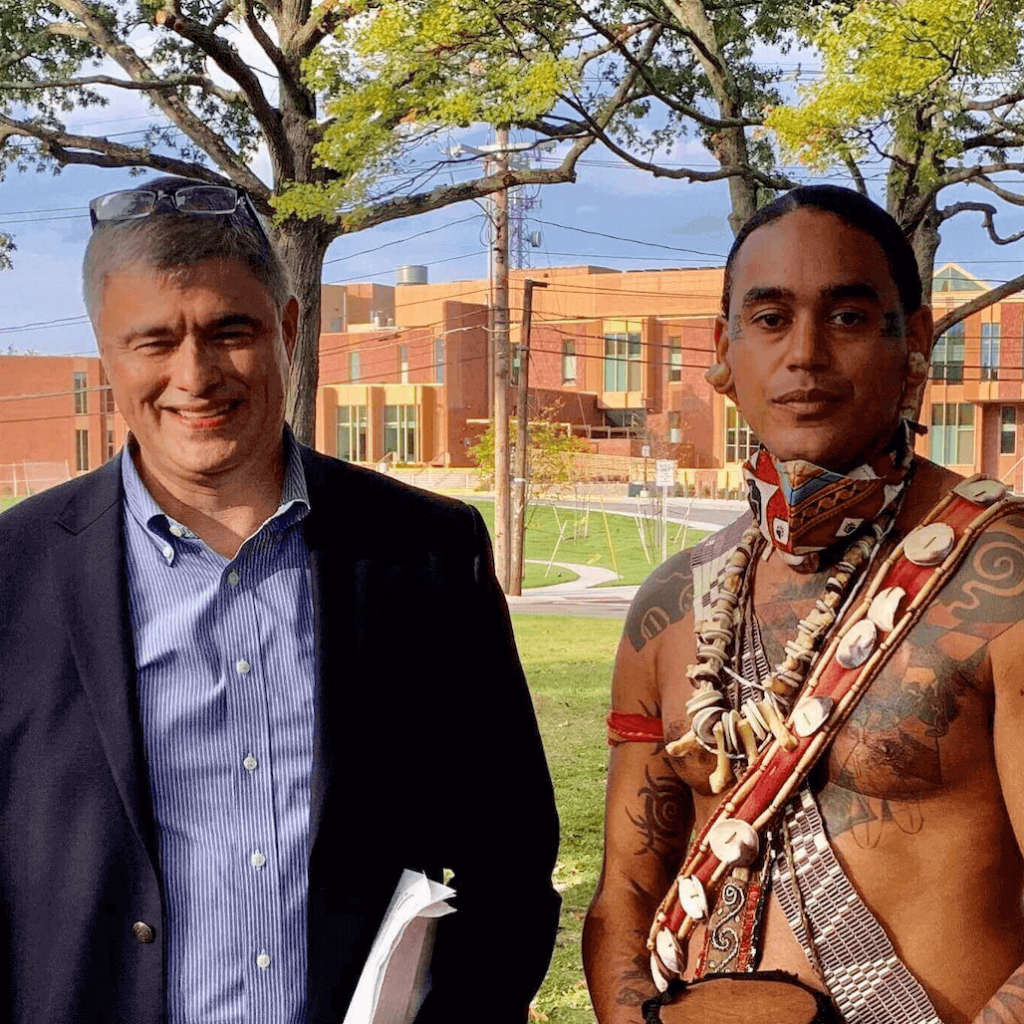
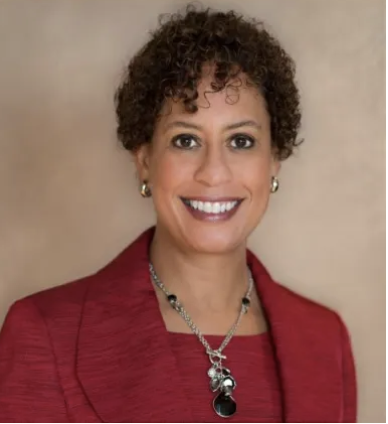
“To roll back the clock on the damage we have done to the earth, the leaders of our countries, cities and companies have to step up, set policies, create plans and stick to them. The efforts of individuals are helpful but won’t be enough. For example, I’d like to see companies reduce the packaging of their products. Recycling is good but why not eliminate excess packaging at the source? In the meantime, in my home we compost our food and yard waste. We recycle and try to give away/re-purpose instead of tossing clothing and household items into the landfills. I’m not doing nearly enough.” Marguerite A. Fletcher (she/her) President, Fletcher Consulting, LLC
“My research is on the policy side, Trying to understand which policies, enacted at which layer of government, offer us the most effective pathways forward. We need to build our “adaptive capacity” which refers to a range of tools and approaches that empower human societies to modify their livelihoods in response to changing climactic conditions.” Lisa Allyn Dale, PhD, Lecturer in Climate, Earth and Society, Columbia Climate School, Co-Director of the Undergraduate Program in Sustainable Development
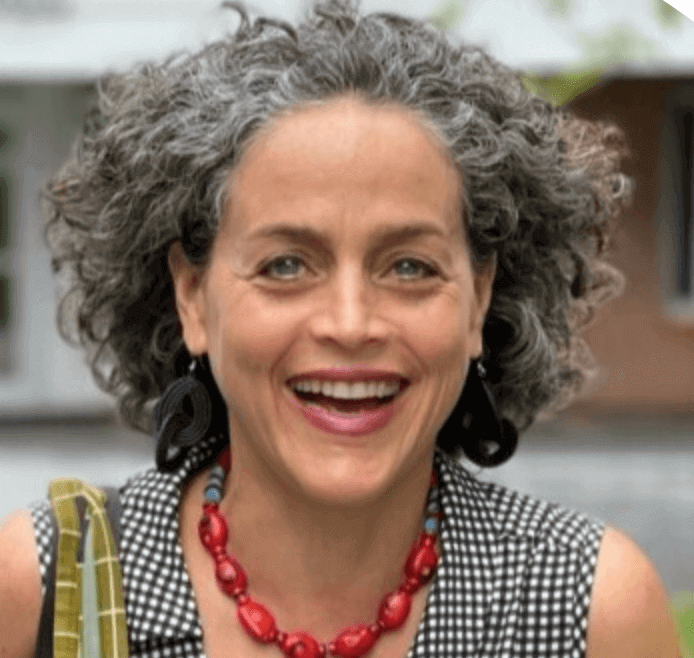
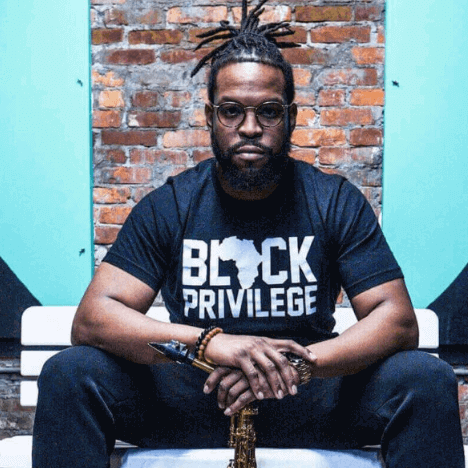
“I believe in starting with self as a place for regulation and grounding. We can first educate ourselves on what climate change is and how it shows up in our everyday lives. Our personal environment is a primary location for change we have control of. We can then move outward into our communities to examine ways for combating climate change. As someone who works in live arts events and programming, working with organizations like Majestic Collaborations can shift the planning and management practices of your work while educating the community members who live and work in your area to create programming that reduces the carbon footprint and learn better sustainability practices for arts events.” Tim Hall, Educator. Artist. Creative Consultant
“In addition to the direct policy work my position affords me to do, I find myself talking more and more to the “average” person about climate change and the need for action. It sometimes has felt like the topic is a bit taboo, so I hope that raising the need for action in casual conversations helps more rally around the policy and commitment that will be necessary to more urgently address the existential threat that climate change presents.” Jay Ash, President & CEO, Massachusetts Competitive Partnership
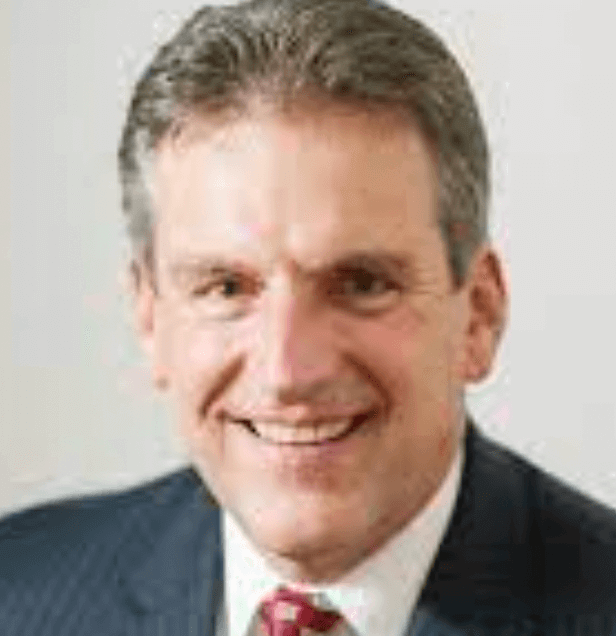
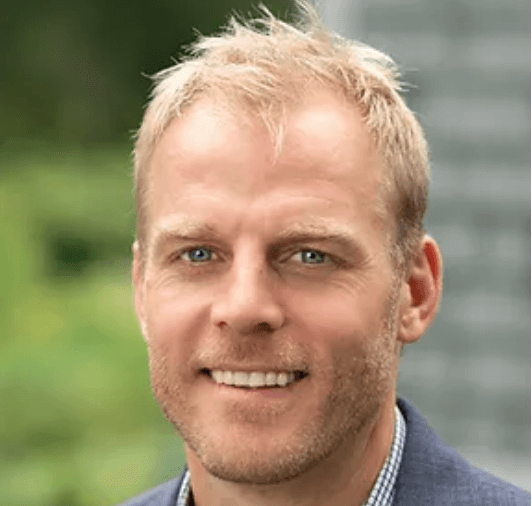
“While I do not hold out a lot of hope that we will see the broad scale personal sacrifices required to hedge the tide of climate change, I do believe there may be technological and economic innovations that could have an outsized impact if properly invested in. I would derive a level of confidence in our collective action on the issue once we start to see unprecedented levels of public investment in new technologies, a winnowing of corporate subsidies in traditional fossil fuel industries, and global support for transitioning states that are overly reliant on oil and gas revenues to alternative income streams.” Derek Mitchell, President, LEADS
“I grew up in a tradition that talks about ‘this fragile earth, our island home,’ and when I think about the one thing that would make me feel confident that we have any hope to protect it for future generations, it’s the idea that we would find a way to remove politics from the issue both within the U.S. and globally, enabling the participation of all regions and nations including Brazil, Russia, India, China, and the African and Middle Eastern nations in what I believe can and should be a more inclusive, more prosperous economy. My more practical answer is if we actually put a global price on carbon.” Laura Bartsch, Executive Vice President, Sales & Marketing at Advanced Energy United
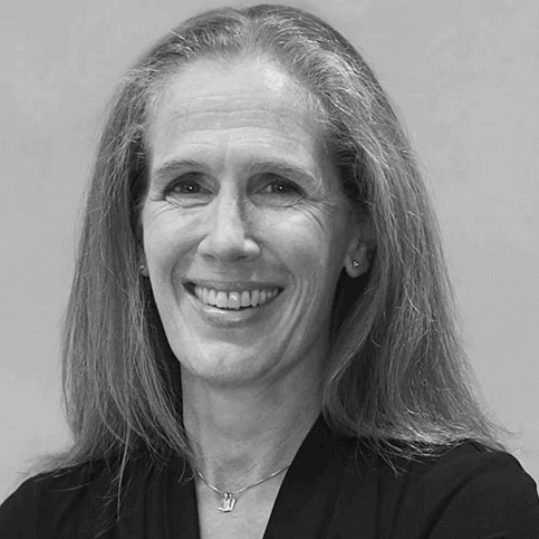
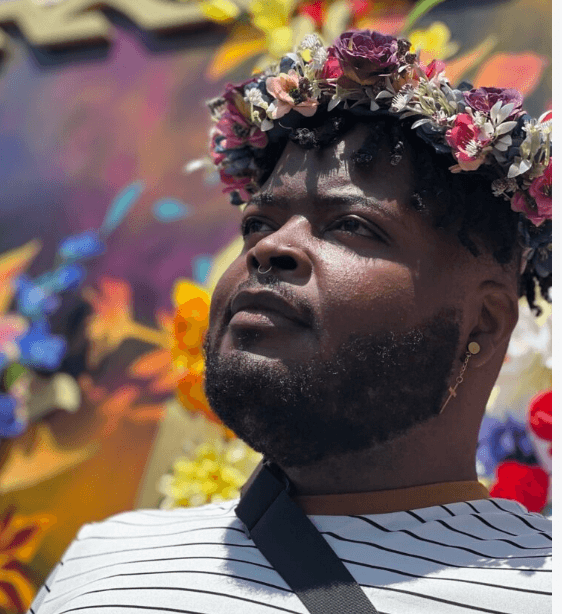
“For me to believe the world is taking climate change seriously, is for me to see an intentional divestment from western, colonial, white supremacist systems. That means no more funding and bailouts for extractive industries that harm our people and planet like our carceral system or fossil fuel companies. It means eliminating wealth gaps and health and wellness disparities based on zip code and identity. It means people over profit. Ryan “Rei” Fielder, Director of Coalitions, Policy and Grassroots Organizing, Boston Ujima Project
“Developing – and helping others develop – an innate sense for the climactic and ecological dimensions to our actions needs to be atop everyone’s list of things to do. It is a relatively costly sense to develop, in the same way learning empathy as a child means that one doesn’t get to act exactly as one wants. But much like empathy, once it is developed it is such a rich and obvious sense that it is difficult to lose. It is unlikely this sense actually goes culturally viral, but it is is equally unlikely we see the necessary action required to avoid climate disaster unless enough powerful people can develop it.” Jack Waitz, Economics major at Middlebury College with interests in finance, sustainability and medicine

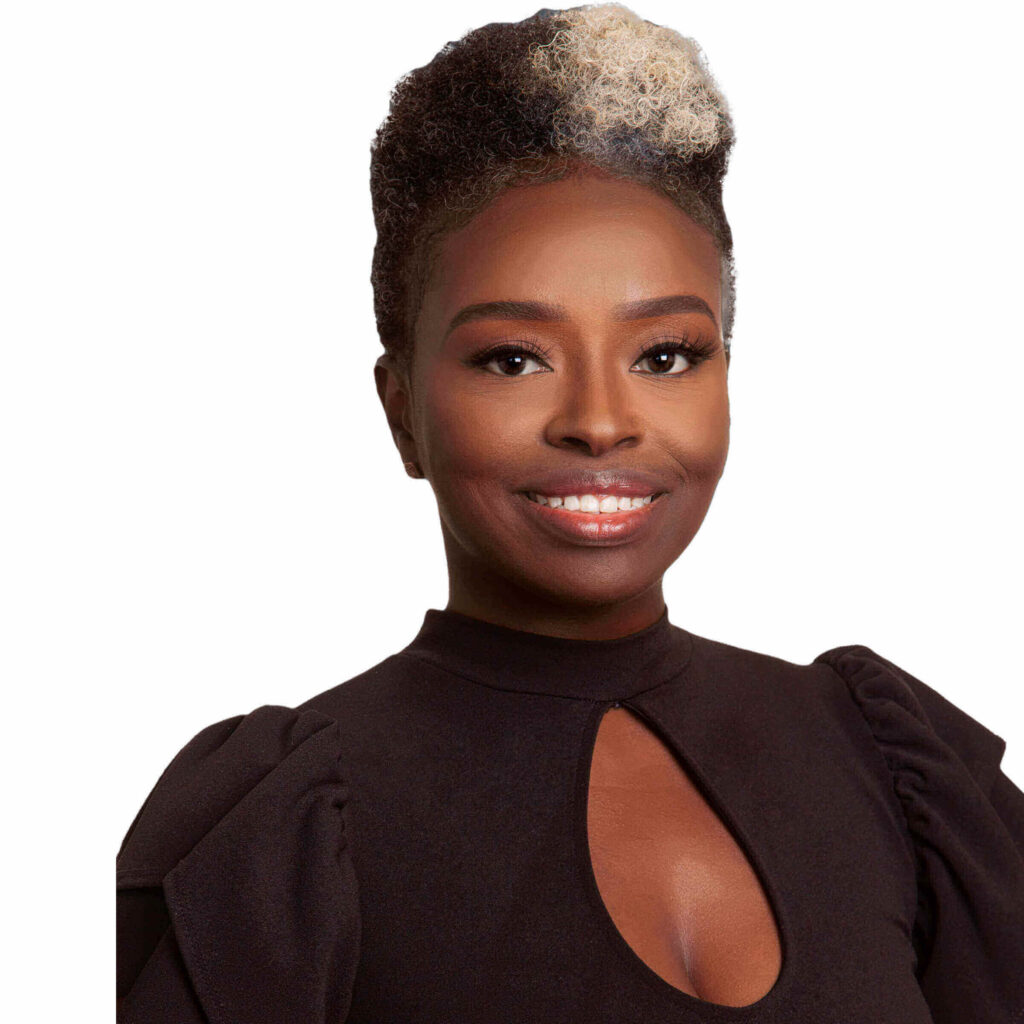
“As a commercial real estate broker I am inspired by the increased demand for energy efficient buildings. There is a generational opportunity now to reduce our carbon footprint and tenants (and their employees) want to be part of the effort. In my daily life, my family takes public transportation as much as possible and we do our best to recycle and consume locally sourced foods from the farmers market. To help everyone be more conscious of the urgency of climate change, we may need more policies that incentivize the use of renewable energy sources.” Judy Cazeau, Commercial Real Estate Broker, Avison Young New England
“Consumer decisions make a huge difference for the climate. When we need to replace a furnace, making the effort to see if electric heat pumps will meet our needs, for example. A new car? See if a hybrid or EV (or one fewer car) can get the job done. How and where our money is invested; does the bank fund new fossil fuel projects? These are decisions that lock in greenhouse gas emissions for decades, and which we rarely consider with the weight they deserve.” Ryan Dunfee, Boston University Questrom Social Impact MBA Student ’23
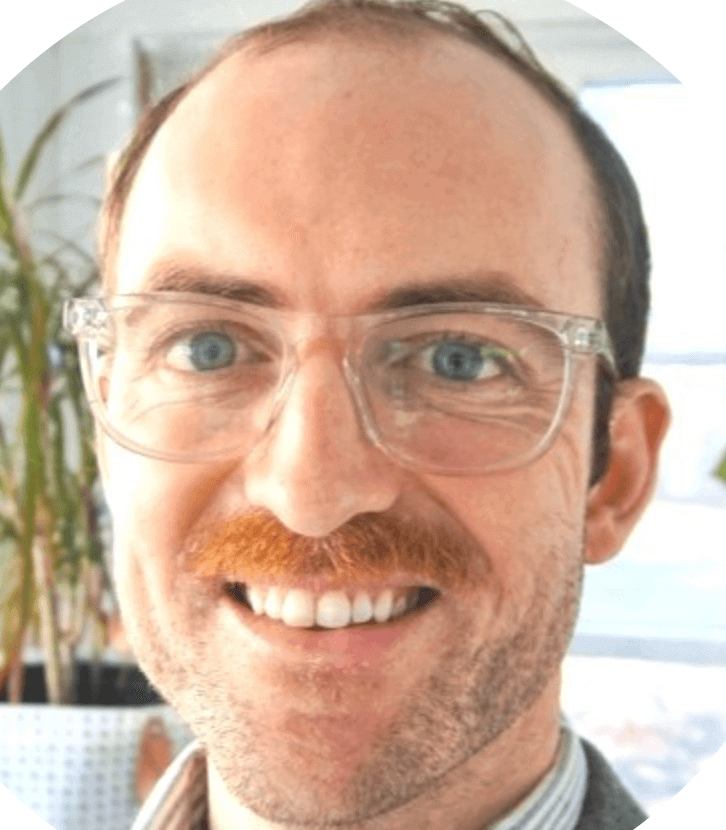
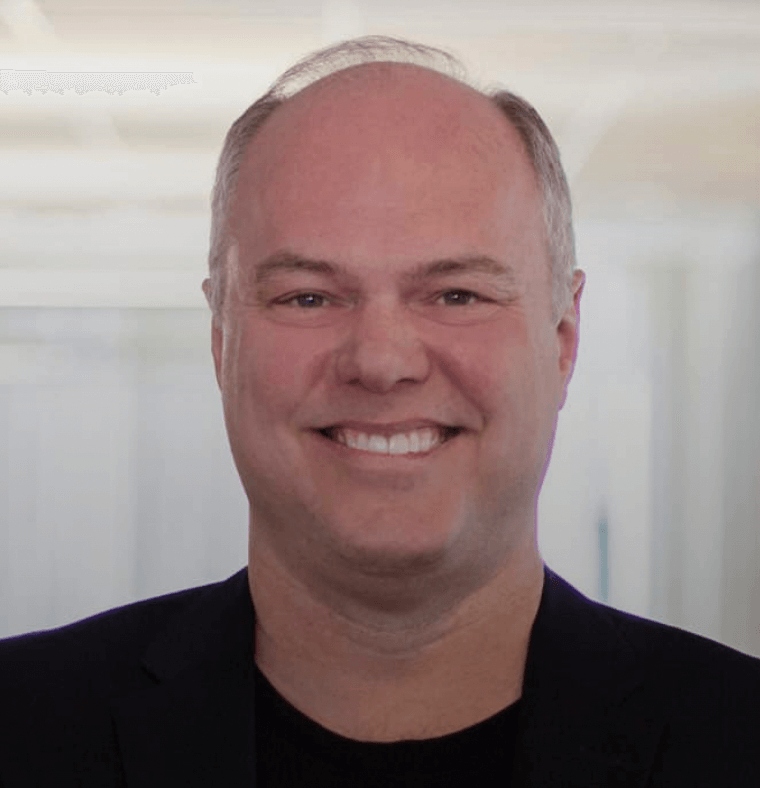
“Keep subsidizing solar panel, heat pump and electric car purchases by consumers until the manufacturing economies of scale make them loads cheaper than their fossil fuel alternatives. Then watch the magic happen. There are already more electric chargers than there are gas stations in the US, and when there are more electric charging stations than gas stations, watch the tipping happen where people will no longer want gas cars because they’re less convenient to fuel up.” Tod Loofbourrow, CEO & Chairman at ViralGains
“I am excited about the amazing technical and nature-based solutions to renew nature and the health of our civilization across the globe. My “one thing” to avert as much of the catastrophic climate disruption as possible is to connect adults and young people with the glory of nature so they can understand that the Earth has always taken care of us and that we need to move quickly to reciprocate and take care of her. Robin Wall Kimmerer from Braiding Sweetgrass was asked about what one thing can “restore relationship between land and people” and she answered “plant a garden.” Susan S. Kaplan, Founder, Sustainable Futures Consulting and former Director of Marketing & Stakeholder Engagement for the Massachusetts Department of Energy Resources

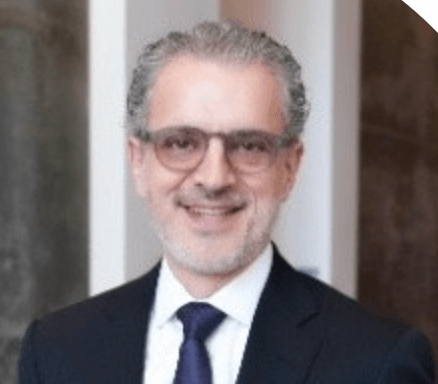
“As I work with individuals and companies to help them understand and engage with the broad challenge of keeping our planet a livable place, a central argument that I keep repeating is that there’s no social justice without environmental justice, and vice-versa. Being able to connect the dots linking these two issues works as a good provocation for most people to consider changing their attitude, and through their actions with the communities around them to look at the environment around them with different eyes.” Ed Morata, CEO, Cambridge Family Enterprise Group & ESG Intra/Entrepreneur
“Last fall, I drove ~9,000 miles around the USA in my Rav4 Hybrid – 44 stops, 19 national/state parks, 150+ miles hiked and 40+ nights camped. There were a lot of trucks on the road with me… and I don’t think one truck was electric. Let’s change that! I’m proud to share that in January I joined Henrik Holland on the Mobility team at Prologis as Global Head of Business Operations. We’re accelerating the transition to zero-emission logistics with a simple, speedy solution for fleet electrification.” Ali Adler, VP, Global Head of Business Operations – Mobility, Prologis
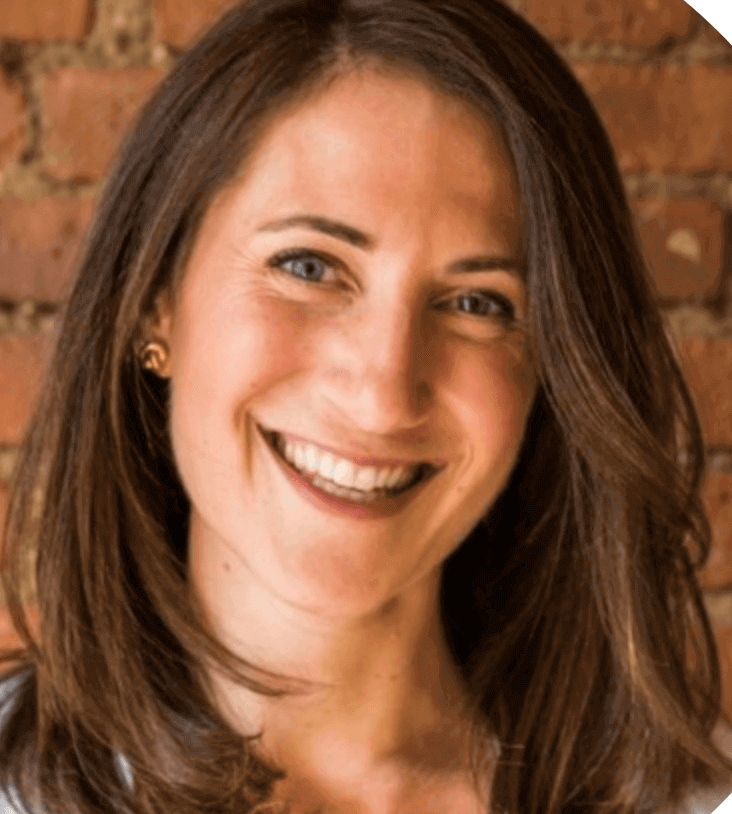
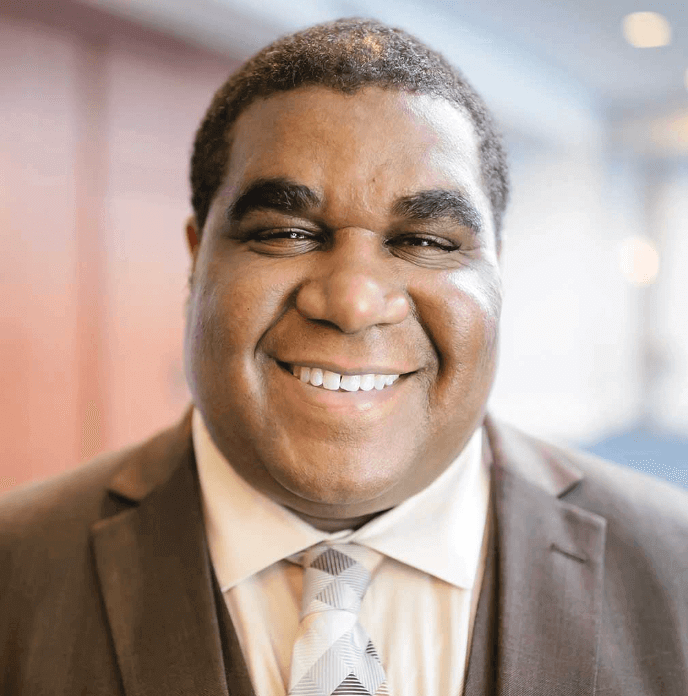
“One important way to tackle climate change is to encourage young people from diverse backgrounds to explore careers in clean tech, such as renewable energy generation and electric vehicle technology. Many urban high school students have limited exposure to clean technology such as solar panels, wind turbines, or electric cars—or to the lucrative careers available in these fields. Clean tech can be a major driver of economic upward mobility. And building greater diversity in the sector will result in more creative solutions–helping us move toward the goal of reducing greenhouse gases much faster.” Marvin J. Loiseau Ed. D, Dean of Academics/Chief Academic Officer, Benjamin Franklin Cummings Institute of Technology
“If climate change is truly an existential threat to humankind, we need to seriously explore all reasonable options to reduce or recapture carbon emissions. This includes advanced fission technology to recycle nuclear waste (which alone would power the US for 100 years), harvesting hydrogen from the oceans by use of wind and solar power, removing impediments to hydro generation, and encouraging innovation of new technologies. We also need to adapt better approaches for climate resilience, rather than shoveling sand against the tide. True solutions will cross any partisan divide. LFG.” Dan Winslow, New England Legal Foundation
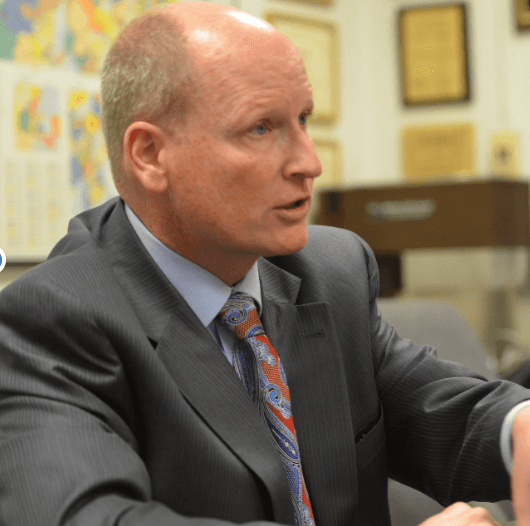
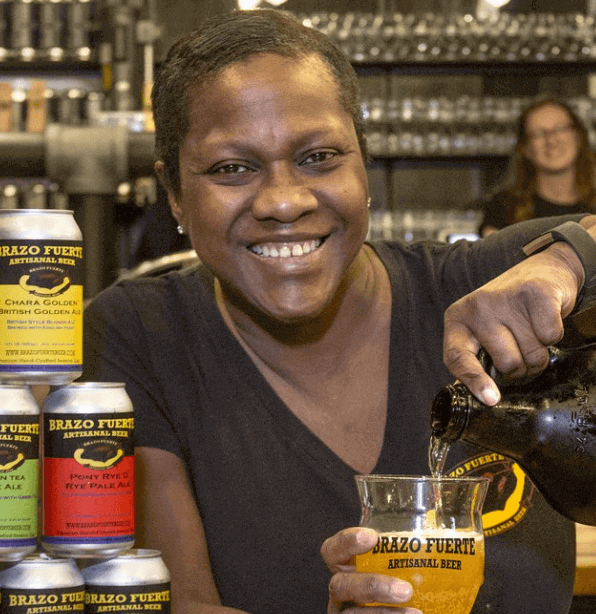
“Regardless of demographic, climate change affects us all. Many people don’t realize the impact on food and beverage prices [throughout the supply chain. From the beginning, I’ve done what I can to have my products lead with a sustainability ethos and efforts to mitigate climate change where I can. Things like CO2 recapture, recyclable packaging, solar energy and re-use of spent grains can help. Climate change makes the barrier higher, but we must persevere” Beverly Armstrong, former biotech executive and CEO/Head Brewer at Brazo Fuerte Artisanal Beer – a Black woman owned business
“We are at a pivotal moment right now — ambitious rhetoric around responding to climate change has become mainstream in many arenas, but now we must confront the reality of what it means to actually implement those ambitions. My focus right now is moving the public conversation from “changing the narrative” about the realities of the climate crisis to “narrating the change” about the incredibly exciting yet difficult work of putting in place and activating the solutions we’ll need to put out the fire.” Alex Goldstein, Founder & CEO 90 West
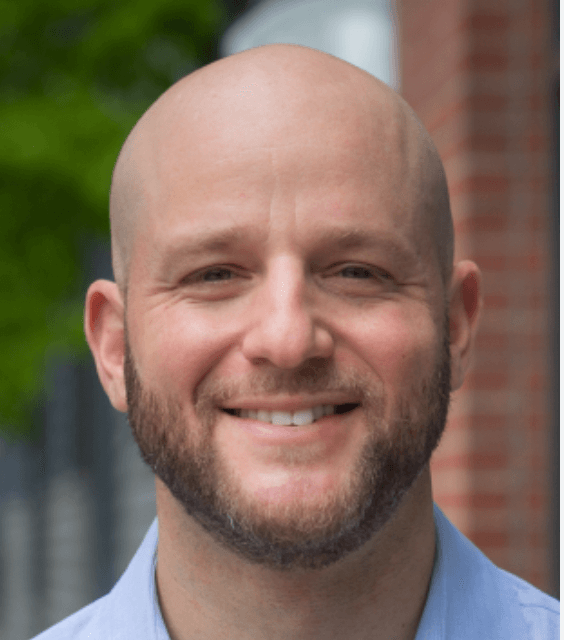
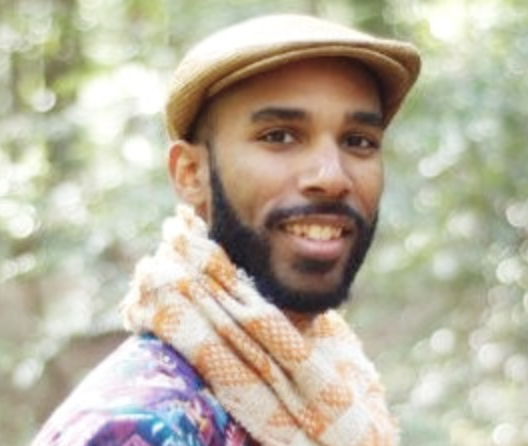
“The number one thing we need to do is talking corruption, revolving doors between politicians and lobbyists, nepotism, bs ESG programs, and corporate power in general. The incentives to do the right thing usually start at the top and right now we have all the wrong incentives. More on the fun and hopeful side of things is I am trying to get more people on bikes and specifically more bike-operated mobile businesses like A Trike Called Funk. of which I am a co-founder.” Edward Galan, Program Manager, EforAll Roxbury.
“Widespread installation of renewable wind and solar are the two biggest ways to reduce our risk of a climate catastrophe. Also: dramatically reducing the waste of resources at every stage of the food lifecycle. Globally, roughly one third of all food is wasted! And the food we eat in the US has traveled an average of over 1,518 miles (on deisel-spewing ships and trucks) to get to our plates! Eating meat (especially from grotesque factory farms) is enormously resource-intensive. Reducing consumption of meat would have a hugely positive effect on our global carbon footprint.” Tedd Saunders, CEO, EcoLogical Solutions, Hotel Industry Sustainability Pioneer since 1989. Co-Owner The Lenox Hotel, Raffles Boston & other Saunders Hotel properties. Author, The Bottom Line of Green Is Black
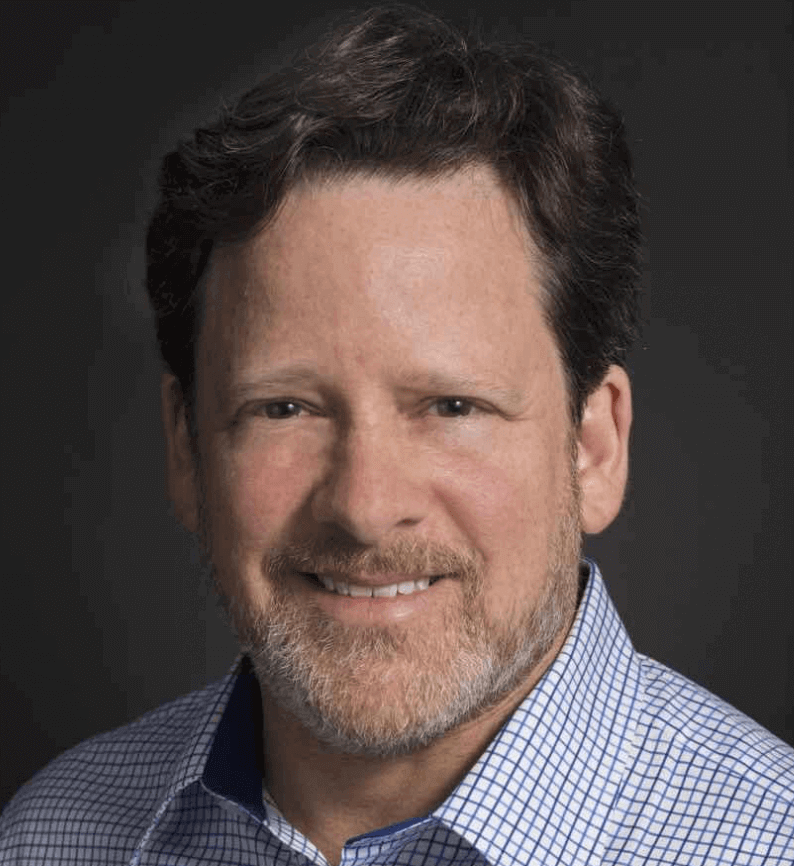
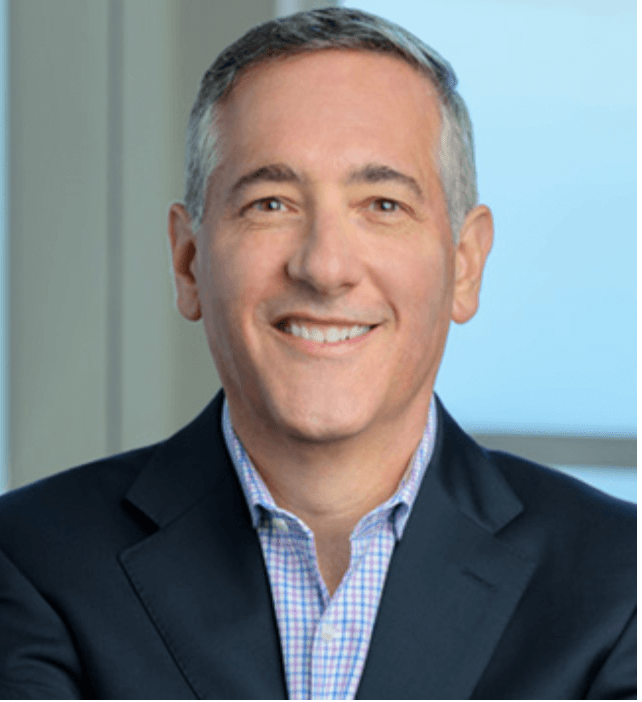
“I have tried leaving a light footprint where I can—adding solar to my house and driving an electric car. On a global/national scale, I would like to see more resources devoted to alternative energies, including nuclear and hydrogen.” Peter Rukin, Mediator, Sequitur Resolutions & Founding Partner at Rukin Hyland & Riggin LLP
“Without effectively addressing clean energy workforce recruitment and retention, training programs will not be impactful in ensuring that we will have the skilled workforce needed to meet climate action goals. A workforce pipeline that includes job placement is key. Many programs just provide training. We do not have time and resources to waste on poor workforce training planning, especially to move low- and moderate-income community members into the clean energy field.” Crystal Johnson, Senior Energy Strategist/Sr. Environmental Planner, Integrative Sustainability & Environmental Solutions (ISES)
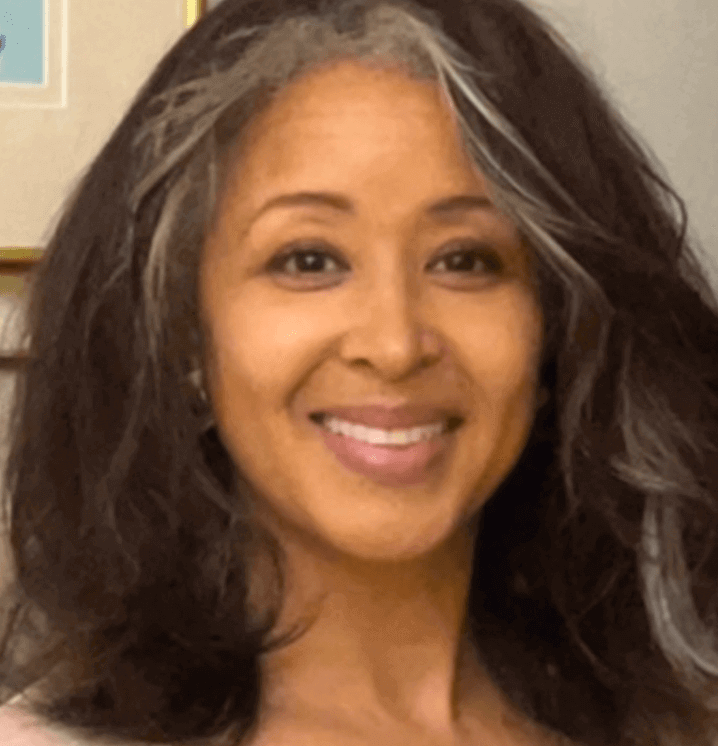
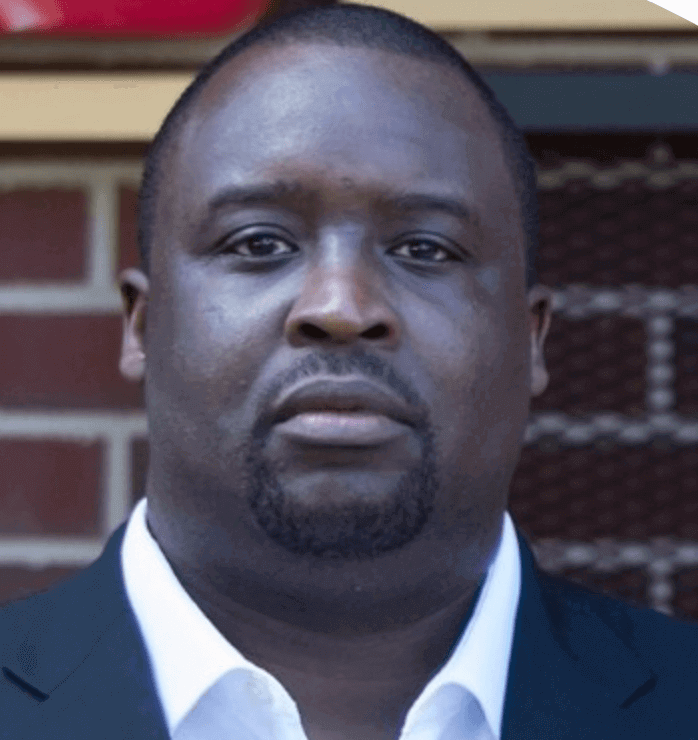
“Our company created a solution that synthesizes data to support energy efficiency & clean energy initiatives. We are solving a social economic problem across cultures and society. We are improving the lives and livelihoods of those excluded from access to modern clean energy and efficiency at the starting point. We bring awareness and resources to those lacking access and eliminate barriers such as language, wealth, race, and information. The work we’re doing is solving far-reaching energy transition challenges by impacting behavior change. I would like to see more organizations invest in companies like ours that participate in this global need to protect us from climate change.” Aaron Wright, CEO, Solomon Group LLC
“Powering the symbiotic relationship between policymakers and constituents is our premiere challenge and opportunity to make true progress on climate change. Many critical high-impact decisions are in the hands of the US government — for example, federal policymakers should stop approving new coal plants, start banning the sale of new oil and gas furnaces, incentivize electric vehicle production, etc. But policy and personal are linked, and we as constituents have the responsibility and the power to hold our government accountable for taking those steps.” Caroline Fay, Product Marketing Leader at Lattice and co-founder of Skillist
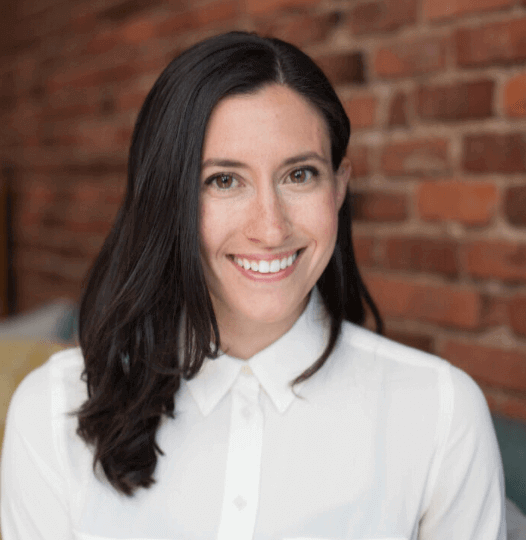

“The response to climate change has to be incorporated in everything we do. What if we adapt to view the planet as a shared and finite resource and use capitalism as part of a model of beneficial international cooperation that serves everyone’s shared interests? What if we, as citizens, take the responsibility to care for those with no voice? It seems like these ideas have to be central to the discussion.” Ariel Noesi, Assistant Vice-President, Business Banking Officer and DEI Chair, Brookline Bank
“Studying environmental science makes you realize how little the general public understands about climate change and why there’s so little political will to make changes – people just don’t have any real concept about what climate change is and why it’s so problematic. Education is the solution to this problem: making sure current and future generations have the knowledge of what is affecting our planet and most importantly of the solutions at our fingertips. The education that I’ve been exposed to makes me optimistic that my generation and future generations have the knowledge needed to take climate change seriously.” Sophie Muller, Environmental Analysis and Policy student, Boston University

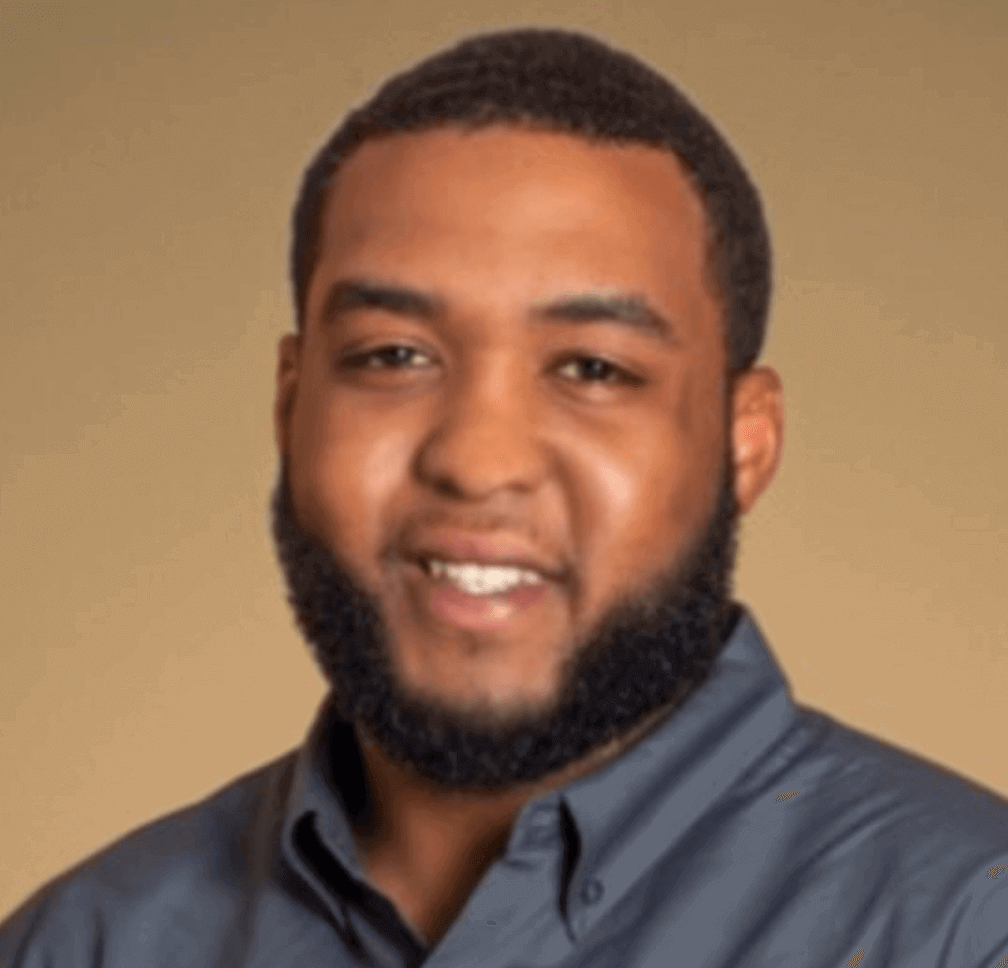
“There’s no reason why the municipalities cannot add a “third bin” to the waste management of their towns for food waste to be composted rather than thrown in with the non compostable items. I’m a beginner to composting myself, and although not yet successful, I feel the food scraps that are decaying in my fridge do more good staying in my backyard than in a plastic bag buried beneath the earth.” Zach Palmer, Business Banking Specialist, Assistant Vice-President at Cambridge Trust Company
“What I would really like to see is any level of universal acknowledgement, beyond political leanings, that as a society, we have limited resources to support life as we know it and that those should be protected. Can we at least agree to that? The other thing that is really on my mind is packaging. Why is there so much freaking packaging? The biggest shippers must find a way to get together and solve this.” Risa Sherman, Purpose and Social Impact Consultant
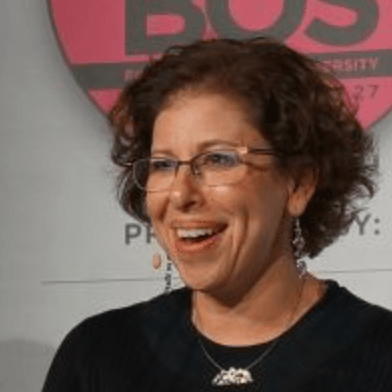
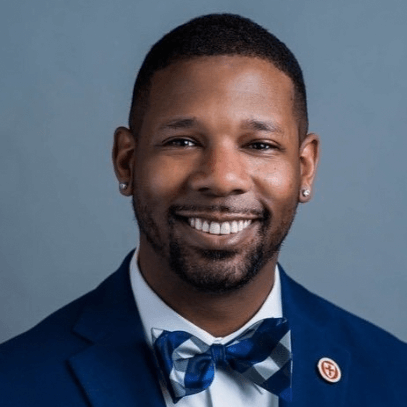
“If you’ve been flying recently, chances are high that your travel has been impacted by the severity of storms. We must take climate change seriously so we can explore the beauty of the world and the vibrancy of its people.” Omari Jahi Aarons, Executive Director & Chief Operating Officer, National African American Insurance Association
“Climate change is such a complex problem that it needs to be addressed on multiple fronts. World leaders must take all necessary steps to accelerate adoption of non-carbon based energy production, particularly renewables. Rich nations may have to subsidize energy distribution infrastructure to support the move to wind and solar in undeveloped countries, as well as our own. And investments must be made in carbon capture technologies; changes in energy use and sources will not be sufficient anymore.” Bill Stone, Co-Founder, OutsideGC
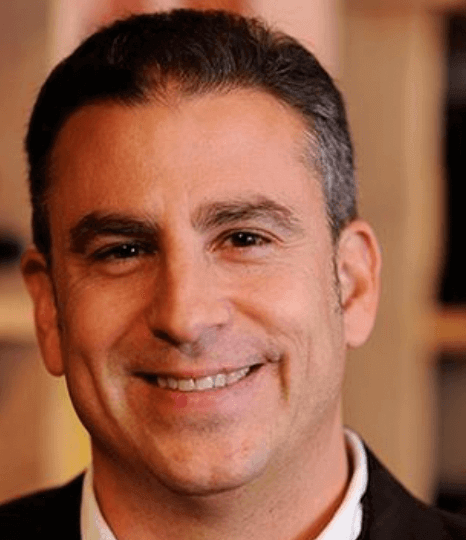
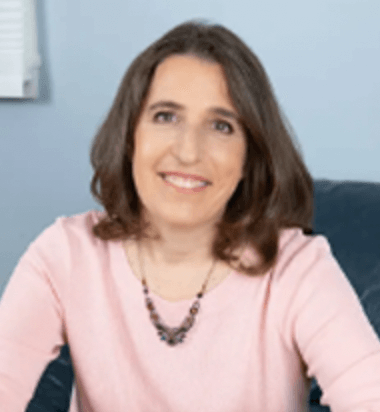
“One big change we initiated as a family is starting composting a few years ago (through a paid service offered by our city.) While individuals can certainly make efforts toward a healthier existence for the planet, it will also take the commitment of corporations and governments.” Deb Elbaum, MD, PCC Leadership Development Executive Coach
“I would like to see “the world” get away from hyperbole like “threat to life as we know it” because doomerism is clickbait that fails to contribute to solutions.” Ben Starr, Partner at Atlantic Retail Properties
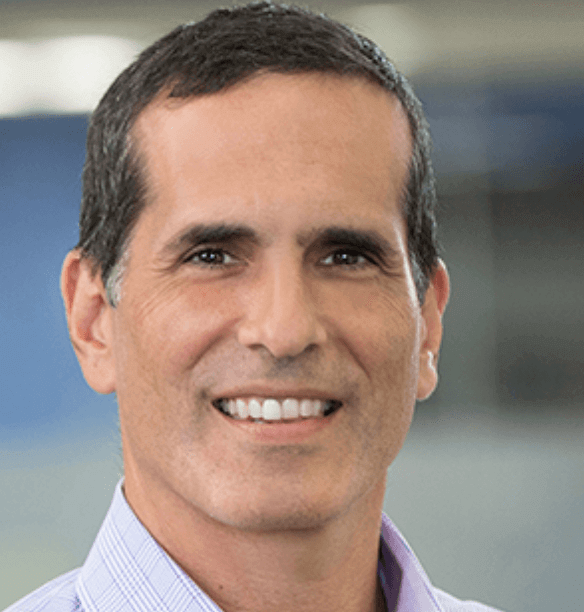

“Raising people’s awareness on the subject is one practical and effective move the world can take collectively. Countries in the world have set long-term goals that require both the effort of current generations and that of our futurity. The earlier people get exposed to the topic, the better they know about it and the more people there are to make personal contributions. I think that the ways an individual can contribute to tackling climate change should be part of a national curriculum and be taught as early as possible.” Wanru Huang, Sociology Student, Boston University
“Humanity has spent most of the last hundred years distancing itself from nature. One of the many consequences of this nature disconnect is that the threat of climate change doesn’t galvanize more of us. We need to work to reestablish a human-nature interconnectedness – what I’ve been calling the next ecology – a new era of living sustainably, being present in nature and taking responsibility for nature’s stewardship.” John Judge is founder of Next Ecology LLC, a green tech company on a mission to get more people connected to nature.
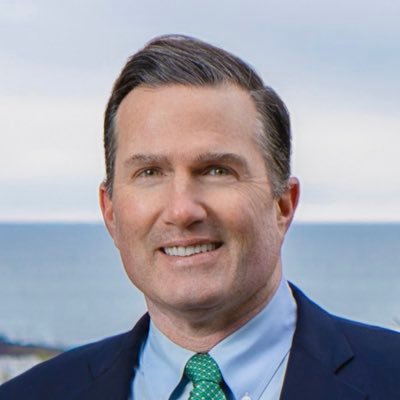
About this piece: Lots of people I asked to participate demurred with comments like “climate is not my strength” or “I don’t think the little that I do is enough to make a big difference.” I respect them just as much as I do the people whose words fill this post. Still we need to understand why otherwise empowered people are reticent to speak up about climate change. My colleague Adrianne Billingham Bock, Director of Curriculum for the Democratic Knowledge Project, recently reminded me that democracy is dependent on agency – our individual ability to make choices about the actions we need to take – or even our perception that we are entitled to have an opinion, make a choice, take action. A major battle in the war on climate change has to be won in our own heads and that battle has to contend with gaps in knowledge, technology, equity and – agency too. Work to be done. A few personal starting points that I am exploring: Campaigns full of action steps offered by Counterspark, books to read with my kids like the Climate Emergency Atlas. And we are exploring solar power and composting at home this year. Thank you for reading and sharing the ideas this brilliant group of colleagues has offered here. What is your one big thing? Can we work on it together?
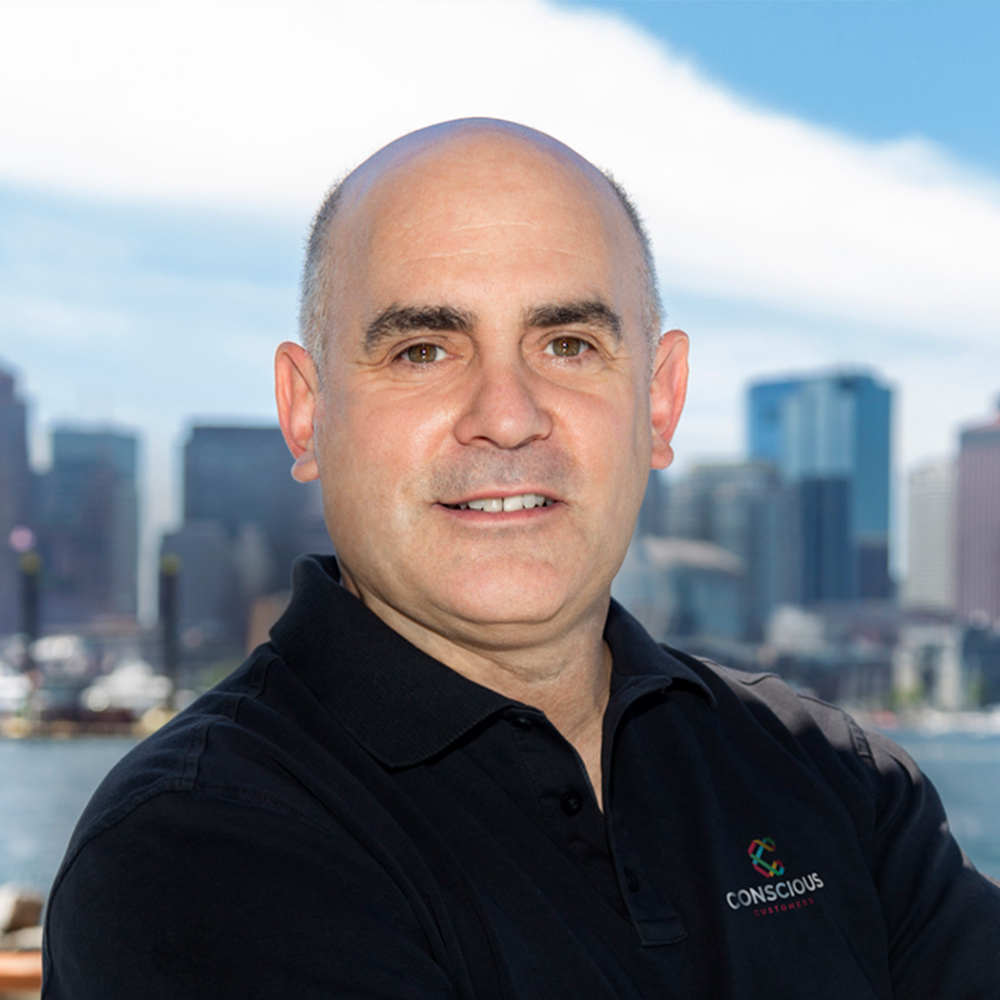
Andy Tarsy empowers leaders to achieve impact, distinction and advantage. He leads Emblem Strategic as a strategist, partnership builder and coach for leaders in business and the non-profit sector. Consider Andy and the diverse, multi-skilled and talented Emblem Network for coaching and consulting on DEI work, stakeholder engagement, partnership building and social impact strategy. Andy is also one-third of Conscious Customers which focuses entirely on helping leading companies adopt high impact supplier and vendor diversity programs. He is a Lecturer at Boston University’s Questrom School of Business and a Trustee of the Benjamin Franklin Cummings Institute of Technology.
If you like this piece you might also like our recent similar posts featuring more than 100 voices on racial justice, gender equity, and visions for the new year. In May, we will probably be talking about motherhood – and in June, well you will have to tune in for that to see.


James F. Boyle
Posted at 02:39h, 07 AprilThank you for organizing this project. It’s great to see and learn from the people on this page. The opportunity for leadership in response to human-caused climate and environmental breakdown is epic, always growing and always more urgent. The one small thing I would recommend is thinking about developing three commitments to maximize your personal contribution. The big thing would be to commit to the following three: 1. Achieve near zero fossil fuels in your life by 2030. 2. Demand all the organizations and communities you participate commit Science Based Targets aligned Net Zero Emissions by 2030 3. Support and participate organizations that demand the U.S. align with relevant UN agreements and guidance to avoid the most catastrophic effects of climate breakdown to seize what the IPCC has recognized is the brief and closing window we have to secure a livable future.